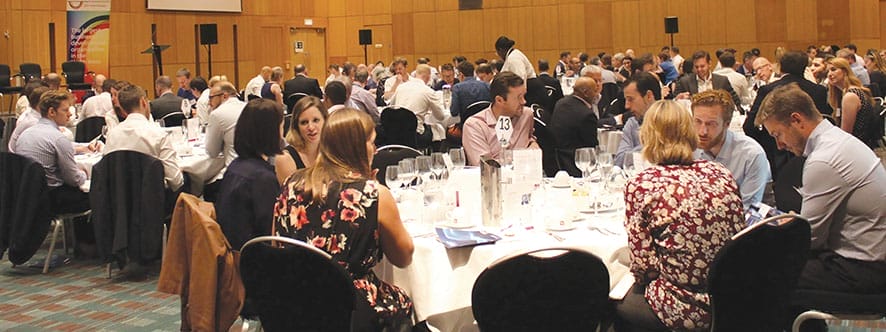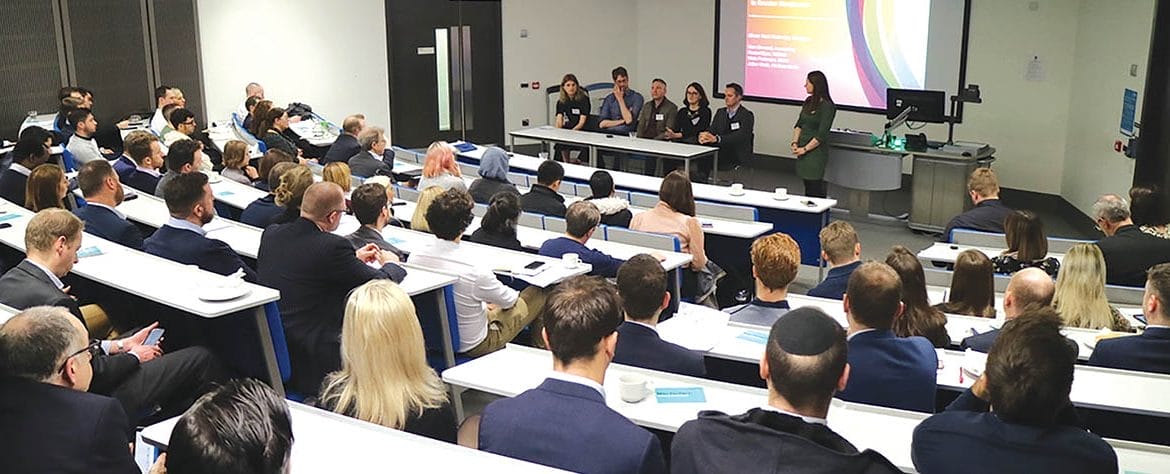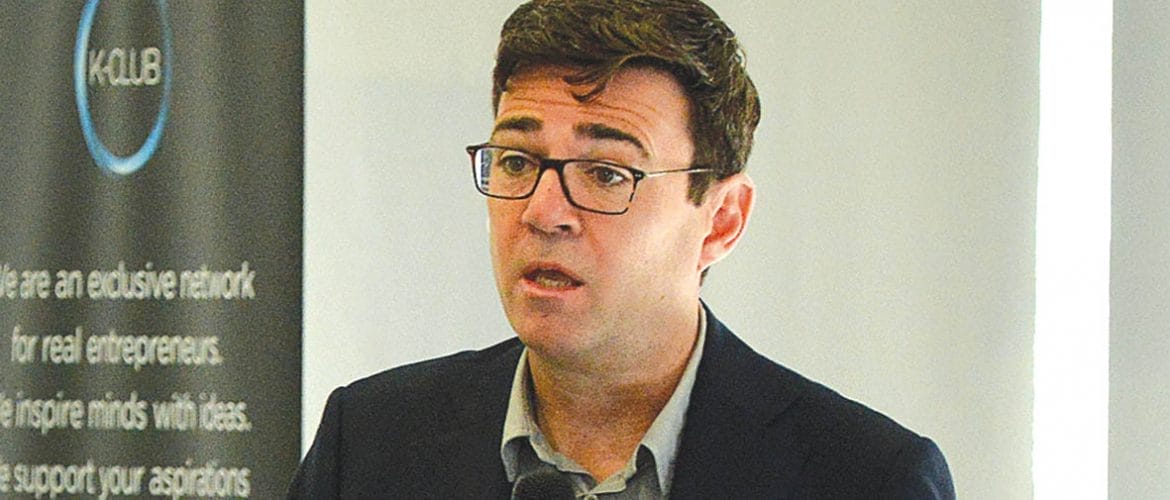pro-manchester recently welcomed over 120 delegates to their annual fintech lunch with the Lord Mayor of the City of London. This is the flagship event in his visit to the city. Jenn Hazlehurst, chair of pro-manchester, opened the event and thanked event sponsors Clarke Wilmott, Robert Walters and Open Money. She welcomed the Lord Mayor of the City of London, Alderman Peter Estlin, to the stage. Addressing delegates, the Lord Mayor praised Manchester’s incredible fintech sector and the part the city has played in establishing the UK as fintech’s global home. The UK currently has around 11% of the global fintech industry – and almost twice as many fintech companies as France and Germany combined. Fintech contributes around £7bn to the UK economy, employing some 80,000 people across 1,600 companies. He recognised that Manchester has an incredible talent pool, thanks in part to the universities and the multicultural nature of the city, but suggested it is important to ensure that growth in the sector is inclusive. After lunch, the Lord Mayor welcomed a panel of fintech experts to the stage to discuss these issues in more detail

What are the key opportunities for the sector in Manchester?
Talent was referenced by all panellists with Manchester maintaining a high graduate retention rate and attracting in professionals from other cities and countries. Paul Vlissidis (NCC Group) noted that GCHQ’s increased presence in the city will draw further cyber expertise. Fintech rarely has legacy systems so it can be secure by design. Anish Kapoor (AccessPay) was confident that back office processing in banks is ripe for innovation with no end of opportunities for development. Amir Nooriala (OakNorth) believes all we are missing is the regulator and Parliamentary presence. The tech skills and people are in Manchester, and the capital will come if entrepreneurs are prepared to take risks. Susan Hall (Clarke Wilmott) agreed, and added how important the city’s international links and multiculturism are.
What more can we do to encourage businesses?
Anthony Morrow (OpenMoney) worried that entrepreneurs may go for funding too early and that VCs will tend to be looking for a quicker exit. The unicorns tend to have a figurehead CEO with a minority shareholding. Amir went further, believing that culturally in the UK the ambition is to have a nicer life – bigger house, holidays etc – rather than the more typical US vision to change the world. Susan also notes that the European patent system more restrictive for business methods than the US version. Big players like Google and Amazon will patent everything that moves! The downside is that it is more expensive for new entrants to the market, and money is spent on patents rather than investing into the business.
Roundtable
Following the lunch the Lord Mayor of London joined a group of business leaders, educational representatives, tech experts and other stakeholders for a roundtable event. Setting the scene for the discussion, Mark Finch (Chair) praised the booming tech sector in Manchester and welcomed the Lord Mayor to the city. The turnover of tech businesses in Manchester was £4.98bn in 2018, and the city is home to the largest number of digital workers in the UK outside of London. There is a clear challenge for recruitment with 40% of tech workers looking for new role and an estimated 800,000 unfilled roles by 2020.
How do we attract and retain tech talent in the region?
Anna Dick (Hiring Hub) attributed the success of recruitment to having a unique proposition – a scale up environment with greenfield tech and an open culture. She has also worked with Beckie Taylor (Tech Returners) to recruit through the Tech Returners programme, retraining an engineer to fulfil a tech role. The returners’ market is a huge untapped talent pool, estimated to be worth £200m to the Greater Manchester economy. The graduate pipeline is vitally important with the Greater Manchester universities turning out hundreds of tech specialists each year. The challenge is to work with businesses to ensure those graduates choose to remain in the region. The MMU is also working with undergraduates to help graduates understand the career opportunities in SMEs. Often they see the big, shiny brands on campus but might get more varied roles in smaller companies. However, it is difficult for the small companies to offer the same scale of leadership programmes as the big corporates. Programmes like pro-manchester’s SME Club help businesses to collaborate and provide a joint offer.
Are we offering enough training to support the growth of the tech sector?
The Lord Mayor reminded attendees that 11.9m people in the country do not have the five basic digital skills. He suggested we need to start planning for sustainable shift in skills development and preparing for a future workforce we do not understand yet. Hannah Tracey (MIDAS) noted that there is a new digital skills strategy with a pot of funding for retraining. This may be to upskill people within their current sectors/companies, or to enable them to develop new careers.
Manchester is home to plenty of inventions. Could we do more to commercialise these?
Jonathan Bowers (UK Fast) noted that there a number of incubator spaces available to support entrepreneurs. UK Fast also gave free hosting to give businesses a headstart. HPE has also changed its approach from buying companies outright to taking smaller shares in equity. Entrepreneurs increasingly want to do it on their own with the support of funders. Joseph Venables (Bruntwood), believes Manchester, and the UK generally, is great at R&D and innovation but we struggle to commercialise new tech. The IP is often sold and exploited elsewhere. Graphene being a prime example where the IP has been sold to China and the UK is then buying products back at a premium. He wants to see the UK getting better at funding within our own communities. Cyber security is a great example of developing expertise within the city. The fact that GCHQ is increasing its presence in Manchester will have a huge strategic impact.
Collaboration is what sets Manchester apart from other tech hubs
The region’s universities not only collaborate with the businesses but with each other. The new GM Cyber Foundry project is jointly run by MMU, University of Manchester, Lancaster University and the University of Salford to provide expertise to SMEs. Already hugely successful, the universities are seeking funding for a similar AI Foundry.
pro-manchester is the largest business development organisation in the Northwest. They represent the business community across the region and support growth and development to promote the North as the place to do business. For more details call 0161 833 0964 or email admin@pro-manchester.co.uk www.pro-manchester.co.uk




